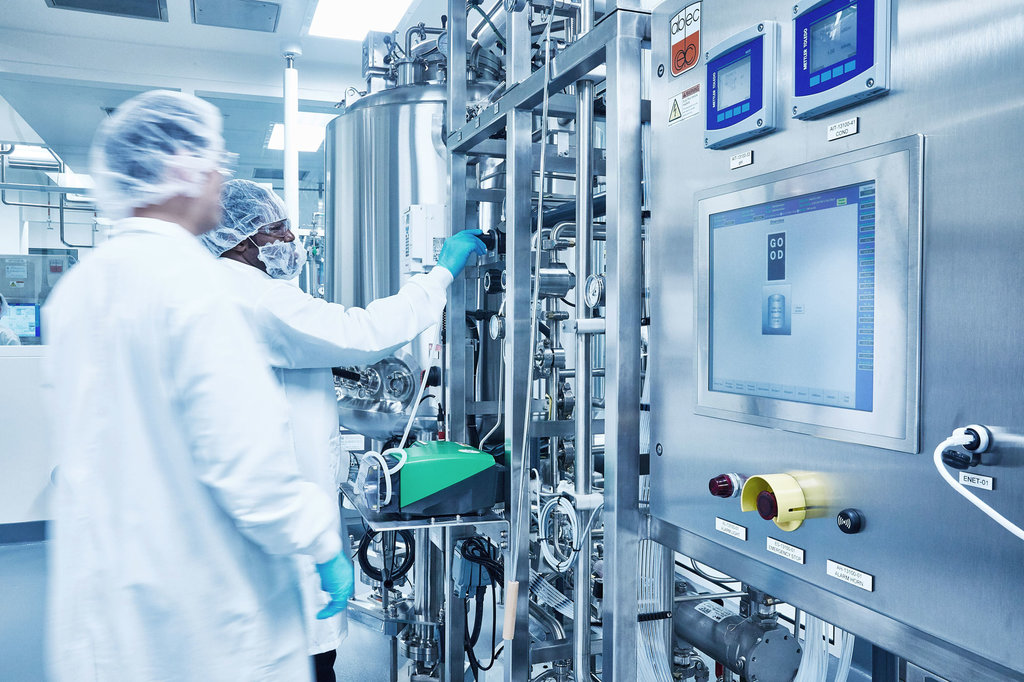Interview
“It’s a massive challenge” – Good Meat’s Josh Tetrick on scaling up production of cultivated meat
Lab-grown meat could help to tackle food security and climate change issues but will it take off? Good Meat’s Josh Tetrick speaks to Just Food.

Josh Tetrick, CEO of Eat Just. Credit: Good Meat
San Francisco’s Eat Just is best known for its plant-based, faux-egg product Just Egg but it is also developing cell-based meat through its Good Meat arm.
In December 2020, Good Meat became the first company to win approval to sell meat created in a laboratory from cells when it was given the green light by Singapore’s regulator. It has since won similar approval in the US, alongside another company, Upside Foods.
Just Food’s Andy Coyne talked to the company’s CEO, Josh Tetrick, about the next steps for Good Meat and the hurdles that still stand in the way of growth for this exciting but nascent industry.
Andy Coyne: What exactly is the relationship between Eat Just and Good Meat?
Josh Tetrick: Good Meat is a subsidiary of Eat Just, which produces Just Egg. It is a separate legal entity which has its own team members and raises its own capital. But it has access to the distribution, resources, talent etc [of the larger group].
Andy Coyne: In March this year, Good Meat received clearance from the US Food and Drug Administration (FDA) for a cell-based chicken product. What has happened since then?
Josh Tetrick: It’s similar to Singapore in 2020. We are selling in small volumes, very small volumes. We are trying to do it in a cost-effective way. Ultimately, we want to make millions of pounds of cultivated meat but we need to do a lot of work on things like cell density and reducing the cost of the growth medium. We are making good progress. In Singapore, we have relationships with a few chefs. In the US, it is just one so far. Thankfully, people are saying it tastes like [traditional] chicken and they like the idea that they can eat meat without feeling bad about it.

Credit: Good Meat
Andy Coyne: Why are you concentrating on chicken?
Josh Tetrick: It is not necessarily cheaper than beef or pork but it is the most consumed animal protein locally. We hope to have approval for beef from the FDA by the end of the year. So far, in the US and Singapore, it’s just for chicken.
Andy Coyne: Last year, US agri-food giant ADM invested in Good Meat. How will this help you to accelerate production?
Josh Tetrick: With the [growth] medium but also with cell density. The growth medium costs are too high because companies like ours only have the ability to sell in two places. We are not purchasing a lot of this medium. The volumes we are talking about are so small that we have to make assumptions about how much we will need in year three or ten years in the future. If we produce more, the price will go down considerably. There’s no doubt it is a massive challenge to be able to produce it on a large scale. This is a significant challenge for cultivated meat. ADM can help on the growth medium side. It sells a number of components in animal feed. Some are amino acids which could be used in cultivated meat.

Credit: Good Meat
Andy Coyne: Are bringing down the costs of the growth media and getting the cell density of the products right the main problems you face?
Josh Tetrick: Along with the size of infrastructure we need.
Andy Coyne: You have attracted a lot of investment money. Can’t you use that?
Josh Tetrick: It’s not sufficient enough to buy large-scale facilities.
Andy Coyne: Investors usually want to see a return of their investment within a set time period but cultivated meat seems to be about medium to long-term growth. Are your investors patient?
Josh Tetrick: Investors differ but they mostly understand this is a long-term project with long-term challenges. There is an awareness that this is not going to happen tomorrow. It will take time to [overcome] the many challenges and uncertainties.
Andy Coyne: Another challenge, presumably, is whether there is a consumer appetite for cultivated meat? Just Food columnist and US food industry observer Victor Martino wrote recently: “Americans have a fear and built-in bias against food products created through bio-technology, which is what cell-based meat is?” What’s your response to that?
Josh Tetrick: The vast majority of meat Americans eat today was optimised using biotechnology. Chicken, beef and pork in most retailers and fast-food restaurants was optimised to grow faster through bio-technology. Conventional meat uses an incredible amount of technology to make it grow more efficiently. There may not be an awareness of that but it is the case.
I don’t need 330 million Americans to accept it. I need a small percentage of that.
Consumer awareness is a big challenge but the data points from Singapore show that when they [consumers] taste it [cultivated meat] they are pretty comfortable with it. I don’t need 330 million Americans to accept it. I need a small percentage of that.
Andy Coyne: Reaching price parity with conventional meat – a problem because of issues linked to scale – is often cited as a barrier to cultivated meat’s growth. Is this an even greater concern during a cost-of living crisis?
Josh Tetrick: Because the volumes are so small, we are not losing consumers because of pricing.
Andy Coyne: I gather that it was when you worked in Africa, before setting up the business, that you first began to question the way food is produced and consumed.
Josh Tetrick: It was a combination of that and my co-founder [Josh Balk] in opening up my eyes to the food system.
Andy Coyne: Do you feel cultivated meat has a role to play in less developed countries?
Josh Tetrick: In many countries, like China, food security is more important than climate change. Climate change for me resonates more than food security but, for a lot of these countries, that’s not the case.

Credit: Good Meat
Andy Coyne: Given the hurdles we’ve discussed and uncertainty around consumer attitudes, what is it that makes you confident of Good Meat’s prospects?
Josh Tetrick: More than 1,800 people have purchased it [Good Meat’s produce] and top chefs have got behind it. There are multiple facilities now [in the wider industry] and costs have come down. But what’s also true is that this industry is barely in its infancy. There is an enormous amount of work to do.
Andy Coyne: As things develop and become more mainstream, can you see big food companies snapping up cultivated-meat businesses or will they remain specialist, stand-alone, entities?
Josh Tetrick: I think it will be both. Obviously, we have ADM right now. I think some big food companies will acquire cultivated-meat companies but some will see it as too risky. I hope Big Food does get involved. The process will accelerate if they get do.